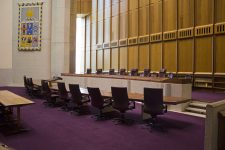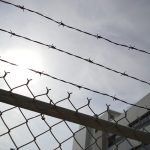Man Appeals to High Court After Prosecution Expert is Discredited

In October 1972, Frits Van Beelan was convicted of murdering 15-year old Deborah Leach in Adelaide’s north-west, and sentenced to death.
He successfully appealed the conviction, but a jury once again found him guilty in July 1973 after a retrial, and he was again sentenced to death.
A further appeal against conviction was dismissed later that year, although his sentenced was reduced and Van Beelan served 17 years in prison before being released.
Questionable evidence
During both of Van Beelan’s trials, the court heard evidence from the state’s chief forensic pathologist, Dr Colin Manock, who specified a time of death which was consistent with the defendant’s admissions of being in the vicinity of the crime.
However the doctor’s evidence was called into question in 2014, after a man by the name of Henry Keogh successfully appealed his murder conviction by presenting evidence that the methods were unreliable. In that case, the court found that a “miscarriage of justice” had occurred.
Mr Keogh was convicted of drowning his fiancée in 1994 and spent twenty years in prison, before the appeal court found that Dr Manock’s “drowning hypothesis” was merely “unsustainable speculation”.
Dr Manock’s methods and theories have since been repeatedly discredited, with suggestions he would do almost anything to increase the chances of a conviction.
Further appeal
Mr Van Beelan appealed his conviction to the South Australian Court of Criminal Appeal last year, arguing that the new information relating to Dr Manock amounts to “fresh and compelling evidence” and therefore triggers the right to a further appeal.
“In order for Van Beelen to be convicted, the jury had to accept Dr Manock’s evidence that the death occurred between 4:10 and 4:30”, his barrister submitted.
“They had to accept that the death occurred at the time he was at the beach, that’s 4:15 and 4:30 but that’s an error, Dr Manock was completely wrong.”
During the appeal hearing, Professor Michael Horowitz supported the barrister’s submission by testifying that “[i]t was not possible to provide an estimate of death within an hour, it’s completely ridiculous.”
Mr Van Beelan’s barrister further submitted that in five other cases, Dr Manock had provided unreliable evidence, or even “deliberately hid” or “failed to disclose” crucial evidence.
Despite all of this, the appeal court rejected Van Beelan’s argument by two judges to one.
Van Beelan has now sought to appeal his case to the High Court of Australia in an effort to clear his name once and for all.
Broader impact
Legal reform activist Dr Bob Moles is hopeful the High Court appeal will vindicate Mr Van Beelan.
“The evidence concerning the timing of death had no scientific basis and that represents a significant error at trial and that warrants a conviction, in my opinion, being set aside,” he stated.
He believes the findings relating to Dr Manock warrant an inquiry into all of the cases he was involved in, and raises questions about the dangers presented by expert forensic evidence – specifically, that the blind acceptance of expert evidence can lead to wrongful convictions.







